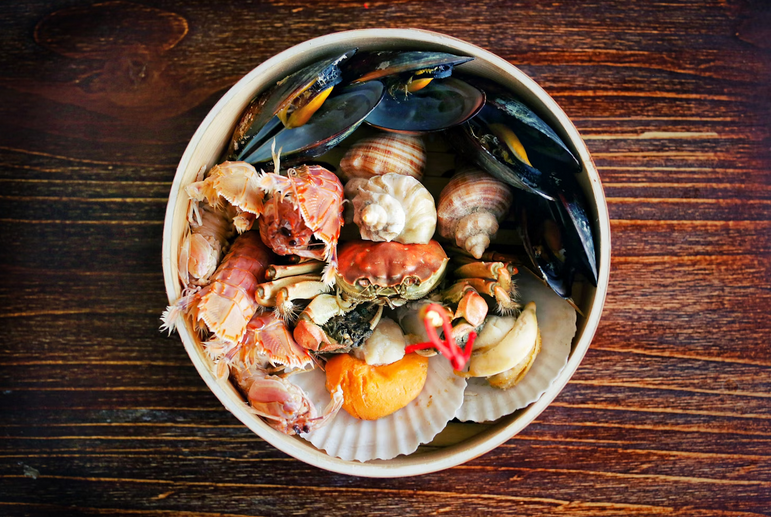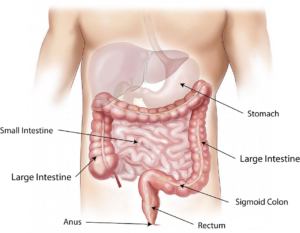Seafood and the Mediterranean Diet: A Heart-Healthy Combination
Picture yourself seated on a sun-drenched Mediterranean terrace, surrounded by the vibrant colors of fresh produce and the enticing aroma of grilled seafood. The Mediterranean Diet isn’t just a way to eat. It’s a lifestyle that celebrates wholesome ingredients, rich flavors, and shared meals with loved ones. With roots tracing back centuries, this diet emphasizes balance and variety while promoting heart health. Scallops are one of the many treasures that stand out as an essential component offering not only delightful tastes but also remarkable health benefits. Let’s dive deeper into how seafood can elevate your culinary journey while nourishing your body and soul.
The Role of Seafood in the Mediterranean Diet
Seafood is a cornerstone of the Mediterranean diet, celebrated for its rich flavors and nutritional benefits. This coastal cuisine incorporates various fish and shellfish, often enjoyed fresh or simply prepared. Fish like salmon, sardines, and mackerel are particularly popular. They provide essential omega-3 fatty acids that promote heart health. These healthy fats help lower cholesterol levels while reducing inflammation. Moreover, seafood offers high-quality protein without excessive saturated fat. This makes it an ideal choice for those aiming to maintain a balanced diet without sacrificing taste.
Health Benefits of Seafood in the Mediterranean Diet

Seafood is a cornerstone of the Mediterranean diet, offering an array of health benefits. Rich in omega-3 fatty acids, fish and shellfish promote heart health by reducing triglycerides and lowering blood pressure. Regular consumption can also improve brain function. Omega-3s support cognitive performance and may reduce the risk of neurodegenerative diseases. Additionally, seafood is packed with high-quality protein. This nutrient helps maintain muscle mass while promoting satiety, making it easier to manage weight effectively. Minerals such as iodine and selenium found in various seafood contribute to thyroid function and antioxidant protection. These nutrients bolster overall wellness.
Top Seafood Choices for a Heart-Healthy Diet
When it comes to seafood, some options stand out for their heart-healthy benefits. Fatty fish like salmon and mackerel are rich in omega-3 fatty acids. These healthy fats can help lower bad cholesterol levels. Sardines are another excellent choice. They are packed with nutrients and often come canned, making them a convenient option. Their small size means they have less exposure to pollutants compared to larger fish. Tuna is popular but should be consumed mindfully due to mercury levels in some types. Opting for skipjack or canned light tuna can reduce risks while still providing essential proteins.
Sustainability and Ethical Considerations When Choosing Seafood

When selecting seafood, sustainability should be at the forefront of your mind. Overfishing has drastically depleted fish populations, threatening marine ecosystems. Opting for sustainably sourced seafood helps preserve these vital resources. Look for certifications like the Marine Stewardship Council (MSC) label or Seafood Watch recommendations. These indicators signify that seafood is harvested responsibly, minimizing environmental impact. Consider local options whenever possible. Supporting local fisheries not only reduces transportation emissions but also strengthens community economies. Ethical fishing practices are equally important. Avoid species that are caught using harmful methods such as trawling or bycatch-driven techniques. Educating yourself on these issues empowers you to make informed choices.
Other Key Components of the Mediterranean Diet
The Mediterranean diet is more than just seafood. It’s a vibrant tapestry of flavors and ingredients that celebrate health and wellness. Fruits and vegetables take center stage. They are packed with vitamins, minerals, and antioxidants. Seasonal produce brings freshness to every meal, encouraging variety throughout the year. Whole grains also play a significant role. Foods like whole wheat bread, brown rice, and barley provide essential fiber for digestive health. Legumes deserve special mention too. Beans, lentils, and chickpeas offer plant-based protein while being low in saturated fat. Healthy fats are key players as well. Olive oil is a staple that not only enhances flavor but promotes heart health when used in place of butter or margarine.
Eating seafood as part of the Mediterranean diet is not just a way to enjoy delicious meals; it’s also an effective strategy for promoting heart health. The combination of fresh fish and shellfish, along with abundant fruits, vegetables, whole grains, and healthy fats makes this dietary approach both flavorful and beneficial. Incorporating a variety of seafood into your meals can offer essential nutrients like omega-3 fatty acids while contributing to overall well-being. Prioritizing sustainable choices ensures that our oceans remain healthy for future generations. By being mindful about what we eat and where it comes from, we can make a positive impact on our health as well as the environment.…








 Essential oils are not your typical scented oils. In fact, these oils are highly concentrated extracts derived from various plants, containing the very essence of their aromatic properties. Due to their concentration, essential oils should always be used with caution and in diluted form. Note that just because something is natural doesn’t mean it can’t have potential risks or side effects. Some essential oils may trigger skin irritation or allergic reactions if used undiluted or applied directly onto the skin.
Essential oils are not your typical scented oils. In fact, these oils are highly concentrated extracts derived from various plants, containing the very essence of their aromatic properties. Due to their concentration, essential oils should always be used with caution and in diluted form. Note that just because something is natural doesn’t mean it can’t have potential risks or side effects. Some essential oils may trigger skin irritation or allergic reactions if used undiluted or applied directly onto the skin. When it comes to
When it comes to 

 When we think of warming up before a
When we think of warming up before a 
 Also known as sedatives or tranquilizers, these are a class of prescription drugs that slow down brain activity. They are typically prescribed to treat anxiety and sleep disorders. However, these drugs can be super addictive and dangerous when misused. Some examples of commonly abused CNS depressants include benzodiazepines (such as Xanax and Valium), barbiturates (such as Nembutal and Seconal), and sleep aids (such as Ambien). If you consume these in high doses or combined with alcohol or other drugs, CNS depressants can cause respiratory depression, coma, and even death.
Also known as sedatives or tranquilizers, these are a class of prescription drugs that slow down brain activity. They are typically prescribed to treat anxiety and sleep disorders. However, these drugs can be super addictive and dangerous when misused. Some examples of commonly abused CNS depressants include benzodiazepines (such as Xanax and Valium), barbiturates (such as Nembutal and Seconal), and sleep aids (such as Ambien). If you consume these in high doses or combined with alcohol or other drugs, CNS depressants can cause respiratory depression, coma, and even death. Prescription drug abuse is a severe problem affecting millions of people worldwide. It can lead to addiction, overdose, and even death. Therefore, be sure you’re armed with the right information about the most commonly abused types of prescription drugs mentioned above. It’s crucial always to follow your physician’s recommendations regarding dosage instructions for any prescription medication you take regularly. In addition, if you find yourself struggling with substance abuse issues related to prescription drugs in particular or addiction, generally speaking, seek professional help immediately before it’s too late.…
Prescription drug abuse is a severe problem affecting millions of people worldwide. It can lead to addiction, overdose, and even death. Therefore, be sure you’re armed with the right information about the most commonly abused types of prescription drugs mentioned above. It’s crucial always to follow your physician’s recommendations regarding dosage instructions for any prescription medication you take regularly. In addition, if you find yourself struggling with substance abuse issues related to prescription drugs in particular or addiction, generally speaking, seek professional help immediately before it’s too late.…

 A lot of golfers with osteoporosis suffer from back pain. That’s why keeping your back muscles in good shape is also a must. To do this, you can try doing yoga and Pilates exercises. Yoga and Pilates, in this case, the downward-facing dog, and pelvic curls, are low-impact exercises that focus on strengthening the core muscles, including those in your back. They also help improve balance, flexibility, and posture.
A lot of golfers with osteoporosis suffer from back pain. That’s why keeping your back muscles in good shape is also a must. To do this, you can try doing yoga and Pilates exercises. Yoga and Pilates, in this case, the downward-facing dog, and pelvic curls, are low-impact exercises that focus on strengthening the core muscles, including those in your back. They also help improve balance, flexibility, and posture.



 Working with a personal trainer also means that you’ll never have to worry about being bored with your workouts. Trainers are experts at creating dynamic, challenging routines that will help keep your body guessing and prevent stagnation. This variety ensures that you stay motivated and continue to see progress.
Working with a personal trainer also means that you’ll never have to worry about being bored with your workouts. Trainers are experts at creating dynamic, challenging routines that will help keep your body guessing and prevent stagnation. This variety ensures that you stay motivated and continue to see progress.
 Taking a fat burner supplement in the morning can help kick-start your metabolism and get you up and ready for the day. This is because fat burners work by increasing thermogenesis, which is the process of burning calories to create heat energy. Taking them first thing in the morning ensures that you can take advantage of this effect during the day, which can help give you an energy boost.
Taking a fat burner supplement in the morning can help kick-start your metabolism and get you up and ready for the day. This is because fat burners work by increasing thermogenesis, which is the process of burning calories to create heat energy. Taking them first thing in the morning ensures that you can take advantage of this effect during the day, which can help give you an energy boost. Finally, taking a fat burner supplement before bed can help support your body’s natural nighttime processes geared towards burning fat while you sleep. Fat burners can provide an additional boost to these processes, and their thermogenic effects can help keep your metabolism going overnight to promote weight loss further.
Finally, taking a fat burner supplement before bed can help support your body’s natural nighttime processes geared towards burning fat while you sleep. Fat burners can provide an additional boost to these processes, and their thermogenic effects can help keep your metabolism going overnight to promote weight loss further.

 Although it may seem counterintuitive, dark chocolate can actually be part of a keto diet as long as you choose varieties that are sugar-free or low in sugar. Dark chocolate contains antioxidants and minerals like manganese, copper, and magnesium, which can help support a healthy heart. It’s also an excellent source of healthy fats that can help to keep you full for longer. Just make sure to enjoy it in moderation.
Although it may seem counterintuitive, dark chocolate can actually be part of a keto diet as long as you choose varieties that are sugar-free or low in sugar. Dark chocolate contains antioxidants and minerals like manganese, copper, and magnesium, which can help support a healthy heart. It’s also an excellent source of healthy fats that can help to keep you full for longer. Just make sure to enjoy it in moderation.

 What you eat – or don’t eat – can also affect your
What you eat – or don’t eat – can also affect your 
 One of the most common signs that you need to visit the dentist is a toothache that doesn’t go away. If you have a toothache, it’s essential to see a dentist as soon as possible.
One of the most common signs that you need to visit the dentist is a toothache that doesn’t go away. If you have a toothache, it’s essential to see a dentist as soon as possible. How your teeth look is a good indicator of your oral health. If you see that your teeth are starting to look more yellow than they used to, it could be a sign that you need to visit the dentist.
How your teeth look is a good indicator of your oral health. If you see that your teeth are starting to look more yellow than they used to, it could be a sign that you need to visit the dentist.
 The first thing you should look for is the doctor’s experience. Make sure the doctor has been performing hair transplants for a while and has a lot of experience. This is important because the doctor will be the one
The first thing you should look for is the doctor’s experience. Make sure the doctor has been performing hair transplants for a while and has a lot of experience. This is important because the doctor will be the one  When looking for a hair transplant clinic, inquire about the different types of procedures offered. You’ll want to make sure the clinic offers FUE (follicular unit extraction) and FUT (follicular unit transplantation) procedures.FUE is a newer, minimally invasive procedure that involves extracting individual follicles from the donor area and implanting them into the recipient area.
When looking for a hair transplant clinic, inquire about the different types of procedures offered. You’ll want to make sure the clinic offers FUE (follicular unit extraction) and FUT (follicular unit transplantation) procedures.FUE is a newer, minimally invasive procedure that involves extracting individual follicles from the donor area and implanting them into the recipient area.
 If you are looking for a citrus-flavoured CBD oil, we recommend checking out FABCBD Citrus CBD Oil. This oil is made with natural ingredients and contains no THC.
If you are looking for a citrus-flavoured CBD oil, we recommend checking out FABCBD Citrus CBD Oil. This oil is made with natural ingredients and contains no THC. Endoca CBD Oil is one of the most popular CBD oils on the market. By trying this product, you will get the sleep you deserve. The best part about this product is that Endoca CBD Oil comes with a 30-day money-back guarantee if you aren’t completely satisfied.
Endoca CBD Oil is one of the most popular CBD oils on the market. By trying this product, you will get the sleep you deserve. The best part about this product is that Endoca CBD Oil comes with a 30-day money-back guarantee if you aren’t completely satisfied.
 A weight loss supplement is a pill, powder, or shake designed to lose weight. These products are available in many different forms and they typically contain ingredients that can suppress your appetite, boost metabolism or increase fat burning capabilities. Many weight loss supplements are available on the market today, but they all come with their own unique set of benefits. Some manufacturers claim to have created products to help burn fat while increasing your energy levels or giving you better mental focus and clarity. You may be wondering how these ingredients work together to change your
A weight loss supplement is a pill, powder, or shake designed to lose weight. These products are available in many different forms and they typically contain ingredients that can suppress your appetite, boost metabolism or increase fat burning capabilities. Many weight loss supplements are available on the market today, but they all come with their own unique set of benefits. Some manufacturers claim to have created products to help burn fat while increasing your energy levels or giving you better mental focus and clarity. You may be wondering how these ingredients work together to change your  Taking weight loss supplements is a great way to improve your overall health. There are many benefits of taking these pills that can help you lose weight and stay healthy at the same time. Weight loss supplements help boost your metabolism, which is an excellent way to burn calories and fats. Since they effectively increase the metabolic rate, it will be easier for you to lose weight by taking these pills. With increased fat burning comes improved heart health, too, because of lower cholesterol levels and blood pressure. This means that you are less likely to develop heart diseases, diabetes, and other related conditions.
Taking weight loss supplements is a great way to improve your overall health. There are many benefits of taking these pills that can help you lose weight and stay healthy at the same time. Weight loss supplements help boost your metabolism, which is an excellent way to burn calories and fats. Since they effectively increase the metabolic rate, it will be easier for you to lose weight by taking these pills. With increased fat burning comes improved heart health, too, because of lower cholesterol levels and blood pressure. This means that you are less likely to develop heart diseases, diabetes, and other related conditions.
 The first factor you should make an effort to consider when looking for a dentist is the type of service offered. You are most likely looking for a dentist in your area as you may have a problem related to your teeth. You should note that each dentist tends to specialize in offering several dentistry services.
The first factor you should make an effort to consider when looking for a dentist is the type of service offered. You are most likely looking for a dentist in your area as you may have a problem related to your teeth. You should note that each dentist tends to specialize in offering several dentistry services. The second important factor that will help you select the right dentist is the certificate. It is essential to note that not every person that claims to be a professional dentist is one. To ensure that you do not make the mistake of going to an unqualified dentist, you should consider the type of certificate they have.
The second important factor that will help you select the right dentist is the certificate. It is essential to note that not every person that claims to be a professional dentist is one. To ensure that you do not make the mistake of going to an unqualified dentist, you should consider the type of certificate they have. If a dental clinic or dentist has an online presence, you should consider reading reviews from past clients. The type of reputation of dentists is crucial as they are most likely going to repeat what they are best known for.
If a dental clinic or dentist has an online presence, you should consider reading reviews from past clients. The type of reputation of dentists is crucial as they are most likely going to repeat what they are best known for.



 Most of those who seek hair transplant procedures are concerned with their appearance, and some may have been affected by having low self-esteem. The good news is that the hair transplant procedure works miracles in a great way to give back the patients their younger and appealing look, making them feel great about themselves and more confident.
Most of those who seek hair transplant procedures are concerned with their appearance, and some may have been affected by having low self-esteem. The good news is that the hair transplant procedure works miracles in a great way to give back the patients their younger and appealing look, making them feel great about themselves and more confident.


 Anxiety is yet another mental health issue that affects a patient’s quality of life. This disorder afflicts almost 20% of the American population at some point in their lives. Research has shown that CBD helps to manage and treat anxiety.
Anxiety is yet another mental health issue that affects a patient’s quality of life. This disorder afflicts almost 20% of the American population at some point in their lives. Research has shown that CBD helps to manage and treat anxiety. Depression is a mental disorder that affects a lot of people in the world. And even though there plenty of effective remedies for these conditions, most of them are prescription drugs. It easy for a patient to become reliant on such medications. Luckily, CBD has some powerful antidepressant properties. It acts on the brain’s serotine receptors. And since depression is associated with serotine levels, CBD can help boost the serotine. As a result, someone suffering from depression gets to live a quality life.
Depression is a mental disorder that affects a lot of people in the world. And even though there plenty of effective remedies for these conditions, most of them are prescription drugs. It easy for a patient to become reliant on such medications. Luckily, CBD has some powerful antidepressant properties. It acts on the brain’s serotine receptors. And since depression is associated with serotine levels, CBD can help boost the serotine. As a result, someone suffering from depression gets to live a quality life.








 Brands get popular for some reasons. In football, Nike, Adidas, Puma, Diadora, Kappa, and Under Armour are familiar names with celebrity athletes endorsing them. They also claim to have unique technologies applied to the design of their cleats. Some are gimmicks, while the others work.
Brands get popular for some reasons. In football, Nike, Adidas, Puma, Diadora, Kappa, and Under Armour are familiar names with celebrity athletes endorsing them. They also claim to have unique technologies applied to the design of their cleats. Some are gimmicks, while the others work. 



 Low Back Pain
Low Back Pain
 The most obvious one when you want to lose weight healthily is to exercise, but not too much. Doing too much activity without letting the body rest will lead to fatigue and sickness, so make sure to exercise in moderation. If you’ve rarely exercised before, do not force yourself to go crazy, instead start on something easy and then work your way out. A tip from us is to make sure that you hydrate yourself when you’re working out.
The most obvious one when you want to lose weight healthily is to exercise, but not too much. Doing too much activity without letting the body rest will lead to fatigue and sickness, so make sure to exercise in moderation. If you’ve rarely exercised before, do not force yourself to go crazy, instead start on something easy and then work your way out. A tip from us is to make sure that you hydrate yourself when you’re working out.








 Heart Disease
Heart Disease Muscle Strains
Muscle Strains



 Some dentists will find comfort when they are told the correct procedure of what they are about to endure. When you are dealing with a professional dentist, he or she will explain to you why you need to be treated and the best methods he or she will be using to manage your dental condition.
Some dentists will find comfort when they are told the correct procedure of what they are about to endure. When you are dealing with a professional dentist, he or she will explain to you why you need to be treated and the best methods he or she will be using to manage your dental condition. In each appointment you make with a dentist, he or she is required to talk with the patients to identify where the problem started. Therefore, when you are choosing a dentist, make sure that you pick one who has excellent communication skills. Avoid dentists who are rude.…
In each appointment you make with a dentist, he or she is required to talk with the patients to identify where the problem started. Therefore, when you are choosing a dentist, make sure that you pick one who has excellent communication skills. Avoid dentists who are rude.…
 One practice that is associated with personal training is that he should have the necessary papers. There are so many degrees that one can get, so always be careful not to get a mediocre one. A trainer that has paper does not mean that he is the best but it’s a good strategic point, the world of nutrition is changing daily, and the personal trainer must always be updated. A trainer should be able to prove that they are informed of the changes. They should always attend classes to make the education they have better. The Personal Trainer Courses is critical for the certified trainers.
One practice that is associated with personal training is that he should have the necessary papers. There are so many degrees that one can get, so always be careful not to get a mediocre one. A trainer that has paper does not mean that he is the best but it’s a good strategic point, the world of nutrition is changing daily, and the personal trainer must always be updated. A trainer should be able to prove that they are informed of the changes. They should always attend classes to make the education they have better. The Personal Trainer Courses is critical for the certified trainers. A great
A great 
 This is a question that many people ask themselves whenever they think of jogging. Well, the answer to that depends on what your objectives are as far exercise is concerned. If you want a killer work out that will help you to burn that extra fats in a matter of days, then you will need to get yourself a good stroller. This will enable you to find effective routes that will enable you to effectively jog and attain the desires of your heart. You need to understand that jogging while pushing the stroller gives you the extra work out apart from ensuring that you can focus on the whole activity.
This is a question that many people ask themselves whenever they think of jogging. Well, the answer to that depends on what your objectives are as far exercise is concerned. If you want a killer work out that will help you to burn that extra fats in a matter of days, then you will need to get yourself a good stroller. This will enable you to find effective routes that will enable you to effectively jog and attain the desires of your heart. You need to understand that jogging while pushing the stroller gives you the extra work out apart from ensuring that you can focus on the whole activity. Apart from being safe and comfortable for your baby. A good baby stroller should be easy to push. This is important because it will ensure that you do not have a hard time using it. In addition to that, a stroller that is easy to push is safe for the baby as the smooth movement ensure that there are no shocks that might hurt your baby. You, however, need to choose a good jogging route.…
Apart from being safe and comfortable for your baby. A good baby stroller should be easy to push. This is important because it will ensure that you do not have a hard time using it. In addition to that, a stroller that is easy to push is safe for the baby as the smooth movement ensure that there are no shocks that might hurt your baby. You, however, need to choose a good jogging route.…








 The cost is one of the important factors that you should always consider. You definitely do not want to spend more than necessary on the same. You, however, need to understand that you get what you pay for. What this means is that cheap methods might not give you the desired results. However, this is not always the case as there are some products that are sold expensively and yet they are not as expensive as their prices tend to suggest. It is therefore upon you to do extensive research before you come to conclusions on the methods to use.
The cost is one of the important factors that you should always consider. You definitely do not want to spend more than necessary on the same. You, however, need to understand that you get what you pay for. What this means is that cheap methods might not give you the desired results. However, this is not always the case as there are some products that are sold expensively and yet they are not as expensive as their prices tend to suggest. It is therefore upon you to do extensive research before you come to conclusions on the methods to use. Time is also another important consideration that you need to make. You definitely do not want a situation where you will have to keep whitening your teeth every month. That will not only be a waste of resources, but also a waste of time. You need to choose a teeth whitening method that will give you a long-lasting solution. You also need to avoid those products that you will keep applying as they are not good for both your wallet and health.…
Time is also another important consideration that you need to make. You definitely do not want a situation where you will have to keep whitening your teeth every month. That will not only be a waste of resources, but also a waste of time. You need to choose a teeth whitening method that will give you a long-lasting solution. You also need to avoid those products that you will keep applying as they are not good for both your wallet and health.…



 es of ringworms that can affect your skin. In most instances, they will affect the scalp. “Tinea cruris” is ringworm, which affects groin area, whereas “tinea pedis” is a ringworm that affects the feet. Symptoms vary depending on the type of ringworm. However, its symptoms include raised, red, itchy patches, which may cause oozing and blistering.
es of ringworms that can affect your skin. In most instances, they will affect the scalp. “Tinea cruris” is ringworm, which affects groin area, whereas “tinea pedis” is a ringworm that affects the feet. Symptoms vary depending on the type of ringworm. However, its symptoms include raised, red, itchy patches, which may cause oozing and blistering. ainly used for hair treatment and other scalp issues. Its healing properties are known to be very effective as far as treating ringworm infections is concerned. It is easy to find this ingredient in your home. The oil will offer you great relief from the itchy skin and makes the area soft and smooth. Coconut oil is mainly used in the treatment of scalp ringworm. It is advisable to apply it on the affected areas and leave it to stay overnight.
ainly used for hair treatment and other scalp issues. Its healing properties are known to be very effective as far as treating ringworm infections is concerned. It is easy to find this ingredient in your home. The oil will offer you great relief from the itchy skin and makes the area soft and smooth. Coconut oil is mainly used in the treatment of scalp ringworm. It is advisable to apply it on the affected areas and leave it to stay overnight.
 Genetics from both sides of your family
Genetics from both sides of your family

 Teeth that have been damaged from the trauma and tooth decay will be fixed using the restorative methods. Methods that the dentist will use to determine if you need tooth filling or repair is the x-ray and the lasers. One they notice that you need a tooth filling the dentist will use methods like the composite filling. The dentist will be one who will advise you on which method to use.
Teeth that have been damaged from the trauma and tooth decay will be fixed using the restorative methods. Methods that the dentist will use to determine if you need tooth filling or repair is the x-ray and the lasers. One they notice that you need a tooth filling the dentist will use methods like the composite filling. The dentist will be one who will advise you on which method to use. The extraction service is so common. When a tooth has been damaged, and nothing can be done to restore it back, the dentists will advise you about extraction. The extraction method is the removal of the teeth from the socket. So many have been faced with the issue of having many teeth in the mouth thus taking up space for other teeth, and the only thing that should be done is the extraction of the tooth. Wisdom teeth must be extracted even after they come out or before. Either way, you must consult a dentist to inquire on when is the right time for your wisdom teeth to be extracted.…
The extraction service is so common. When a tooth has been damaged, and nothing can be done to restore it back, the dentists will advise you about extraction. The extraction method is the removal of the teeth from the socket. So many have been faced with the issue of having many teeth in the mouth thus taking up space for other teeth, and the only thing that should be done is the extraction of the tooth. Wisdom teeth must be extracted even after they come out or before. Either way, you must consult a dentist to inquire on when is the right time for your wisdom teeth to be extracted.…



 This type of vitamin is in vegetables, and most of us don’t eat enough vegetables in a daily routine. There are a lot of vegetable supplements that have vitamin C and E. By adding vitamin C, it will help fight signs of aging and keep your
This type of vitamin is in vegetables, and most of us don’t eat enough vegetables in a daily routine. There are a lot of vegetable supplements that have vitamin C and E. By adding vitamin C, it will help fight signs of aging and keep your By using a vegetable supplement, you will be able to control your blood sugar along with some exercise. You will also reduce joint pain, and you will maintain your weight or even lose some pounds.
By using a vegetable supplement, you will be able to control your blood sugar along with some exercise. You will also reduce joint pain, and you will maintain your weight or even lose some pounds.
 Only the unbearded dudes understand what it is that they go through every day without a beard. They watch their bearded counterparts and feel a sense of jealousy so to speak. They just wish that they could grow some even if it’s just a little bit. Here are some useful tips on how to go about it and feel like a man;
Only the unbearded dudes understand what it is that they go through every day without a beard. They watch their bearded counterparts and feel a sense of jealousy so to speak. They just wish that they could grow some even if it’s just a little bit. Here are some useful tips on how to go about it and feel like a man;
 Nowadays, you can have the best professional teeth whitening system that the dentist will offer you right in the convenience of your own home. You can now buy a whitening kit that has everything in it to give you that great smile. The kit will come with three gels and a blue light as well as a color chart so you can see the results in just as little as one week.
Nowadays, you can have the best professional teeth whitening system that the dentist will offer you right in the convenience of your own home. You can now buy a whitening kit that has everything in it to give you that great smile. The kit will come with three gels and a blue light as well as a color chart so you can see the results in just as little as one week.

 It is essential to give your skin the nutrients it needs by making a good selection of organic skin care. It is perfectly acceptable that you stop using chemicals. This is because it is not healthy friendly. With the use of organic skin care, you will reduce the fine wrinkles and line on your skin. Also, it will hydrate and nourish the skin to make it look healthier and soft always.
It is essential to give your skin the nutrients it needs by making a good selection of organic skin care. It is perfectly acceptable that you stop using chemicals. This is because it is not healthy friendly. With the use of organic skin care, you will reduce the fine wrinkles and line on your skin. Also, it will hydrate and nourish the skin to make it look healthier and soft always. The anti ageing cream products in organic skin care contain some of the important ingredients from the plant kingdom. Some people may decide to reverse skin ageing, and they prefer to do it naturally. Then it is important if they will consider using these products. It is important to note that there is a difference between natural and organic. Therefore, understand that your body can use all organic ingredients, but also it cannot use all natural products or ingredients. It is crucial to know that organic wrinkle cream does not contain any chemicals and there are no preservatives or additives.…
The anti ageing cream products in organic skin care contain some of the important ingredients from the plant kingdom. Some people may decide to reverse skin ageing, and they prefer to do it naturally. Then it is important if they will consider using these products. It is important to note that there is a difference between natural and organic. Therefore, understand that your body can use all organic ingredients, but also it cannot use all natural products or ingredients. It is crucial to know that organic wrinkle cream does not contain any chemicals and there are no preservatives or additives.…

 od ranking in a search engine like Google would mean that the reputation of the kratom vendor is positive among practitioners. Reputation cannot be acquired through dubious means but proper service delivery. In that case, you ought to consult widely to get ideas about some of the top online sellers before procuring the services of a particular one.
od ranking in a search engine like Google would mean that the reputation of the kratom vendor is positive among practitioners. Reputation cannot be acquired through dubious means but proper service delivery. In that case, you ought to consult widely to get ideas about some of the top online sellers before procuring the services of a particular one.

 The location is one of the most vital factors to consider when choosing an enema therapist. The closer the therapist’s clinic is to your residence the better as emergency cases can be easily handled. Also, another vital factor to look at is whether the enema therapist embraces an open or private concept treatment rooms. With an open concept, there is usually one big room with beds divided by curtains spaced out. A closed concept treatment has private treatment rooms or enclosed rooms with doors. A closed concept enema therapy is preferred to the open one as it guarantees secrecy. Visiting an enema therapist whose clinic is clean and bright with modern and newer equipment also enhances a patient’s comfort.…
The location is one of the most vital factors to consider when choosing an enema therapist. The closer the therapist’s clinic is to your residence the better as emergency cases can be easily handled. Also, another vital factor to look at is whether the enema therapist embraces an open or private concept treatment rooms. With an open concept, there is usually one big room with beds divided by curtains spaced out. A closed concept treatment has private treatment rooms or enclosed rooms with doors. A closed concept enema therapy is preferred to the open one as it guarantees secrecy. Visiting an enema therapist whose clinic is clean and bright with modern and newer equipment also enhances a patient’s comfort.…
 Tooth pain is something most people dread. It can severely degrade the quality of life, and hamper any person’s daily activities. To alleviate the consequences, applying the best remedy, as soon as possible, should be a number one priority.
Tooth pain is something most people dread. It can severely degrade the quality of life, and hamper any person’s daily activities. To alleviate the consequences, applying the best remedy, as soon as possible, should be a number one priority. Garlic and fresh peppermint are also quite useful for alleviating the tooth pain. For centuries, people have used garlic for various medicinal purposes, and dealing with a toothache is one of them. Garlic is best used by mixing it with a small amount of rock salt, applying it to the ailing tooth, a leaving it there for a little while. Fresh peppermint can also be helpful, by taking at least 5 grams of it, mixing it with a teaspoon of salt, and adding that mixture to a cup of boiling water. The entire mixture should be left to cool down, and then drank.
Garlic and fresh peppermint are also quite useful for alleviating the tooth pain. For centuries, people have used garlic for various medicinal purposes, and dealing with a toothache is one of them. Garlic is best used by mixing it with a small amount of rock salt, applying it to the ailing tooth, a leaving it there for a little while. Fresh peppermint can also be helpful, by taking at least 5 grams of it, mixing it with a teaspoon of salt, and adding that mixture to a cup of boiling water. The entire mixture should be left to cool down, and then drank.




 Fish are always good for you because they contain calcium and omega three oils which are beneficial to the body. Try to have fish at least once or twice a week. Salmon or trout are some good options and so is tuna.
Fish are always good for you because they contain calcium and omega three oils which are beneficial to the body. Try to have fish at least once or twice a week. Salmon or trout are some good options and so is tuna.




 This method is seen as inferior, but wearing a pair of sunglasses can go a long way in helping you prevent allergy reactions when pollen counts are high. It can keep away the pollen from entering your eyes along with the wind that comes with them. The hat you wear should have a broad brim so as to prevent pollen grains from accessing your face at any time.…
This method is seen as inferior, but wearing a pair of sunglasses can go a long way in helping you prevent allergy reactions when pollen counts are high. It can keep away the pollen from entering your eyes along with the wind that comes with them. The hat you wear should have a broad brim so as to prevent pollen grains from accessing your face at any time.…

 You should never start the process to quit smoking while under stress. This is a guaranteed way to fail in your journey. Make sure that all circumstances are in your favor at this challenging time. Ensure that you do not begin your journey to recovery when you are going through challenges like family problems, some challenges at work, educational stress if you are a student or any other kind of stress. This will be detrimental to your quest in kicking away the habit of smoking.…
You should never start the process to quit smoking while under stress. This is a guaranteed way to fail in your journey. Make sure that all circumstances are in your favor at this challenging time. Ensure that you do not begin your journey to recovery when you are going through challenges like family problems, some challenges at work, educational stress if you are a student or any other kind of stress. This will be detrimental to your quest in kicking away the habit of smoking.…